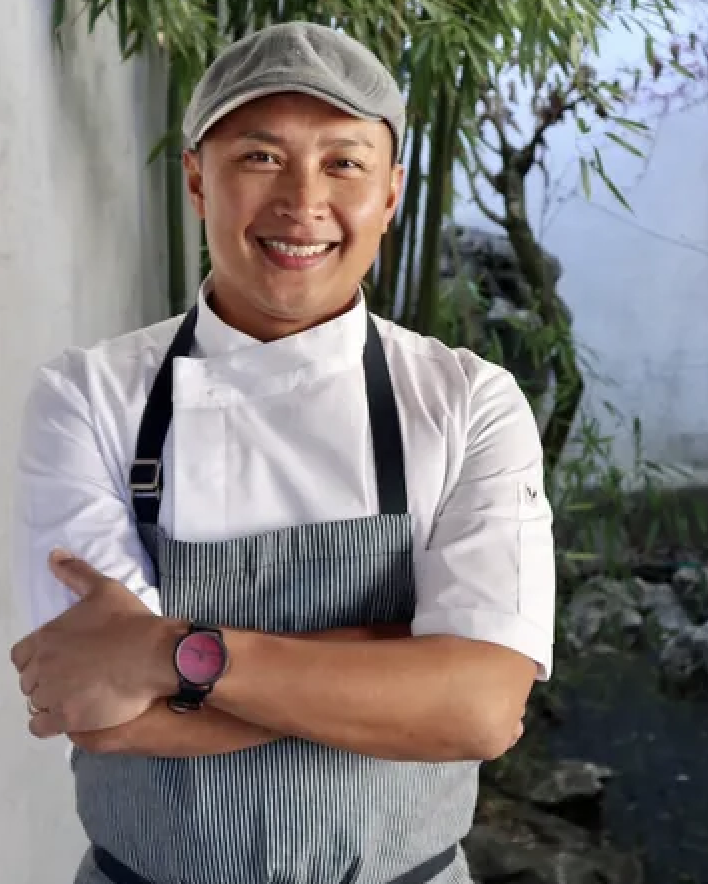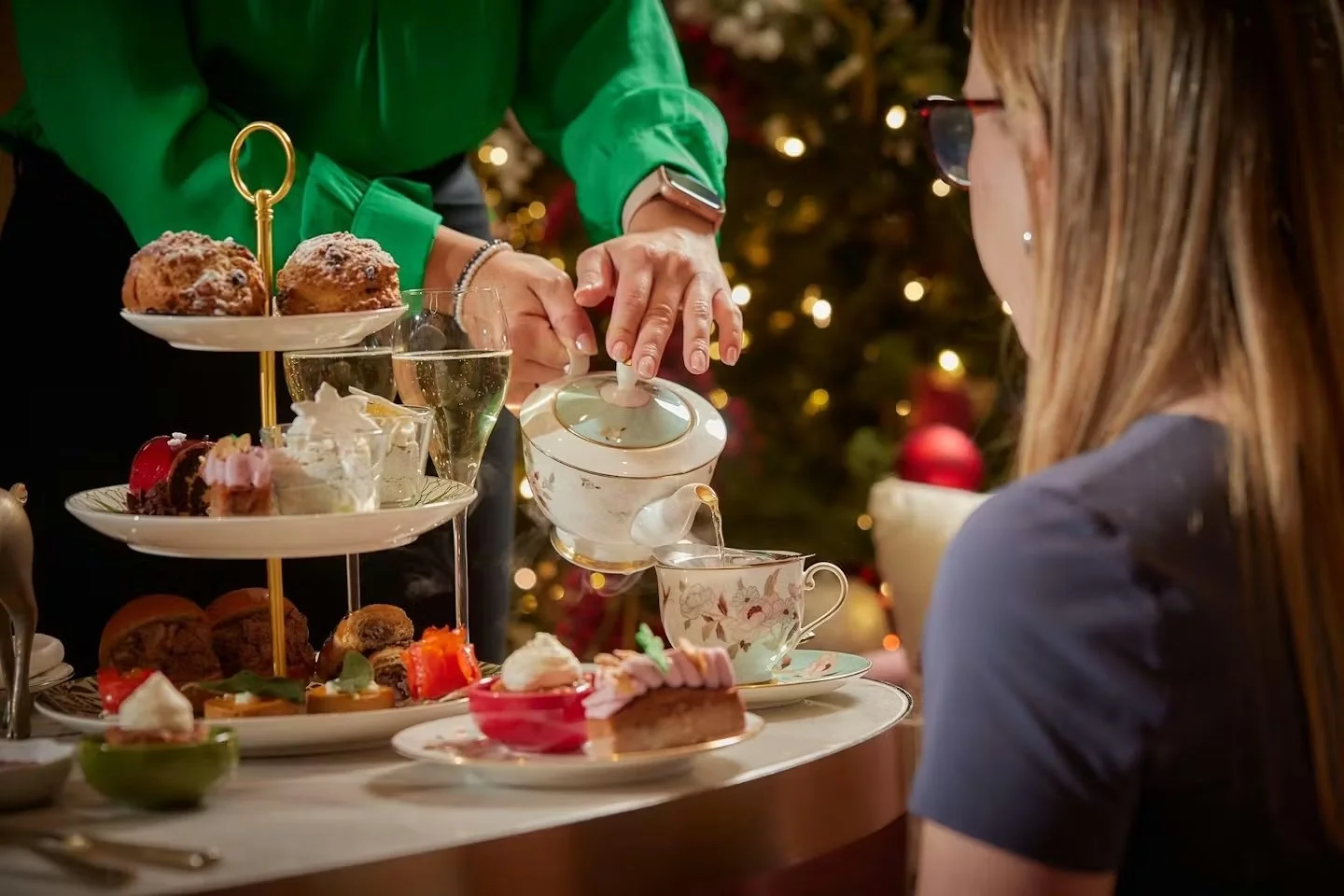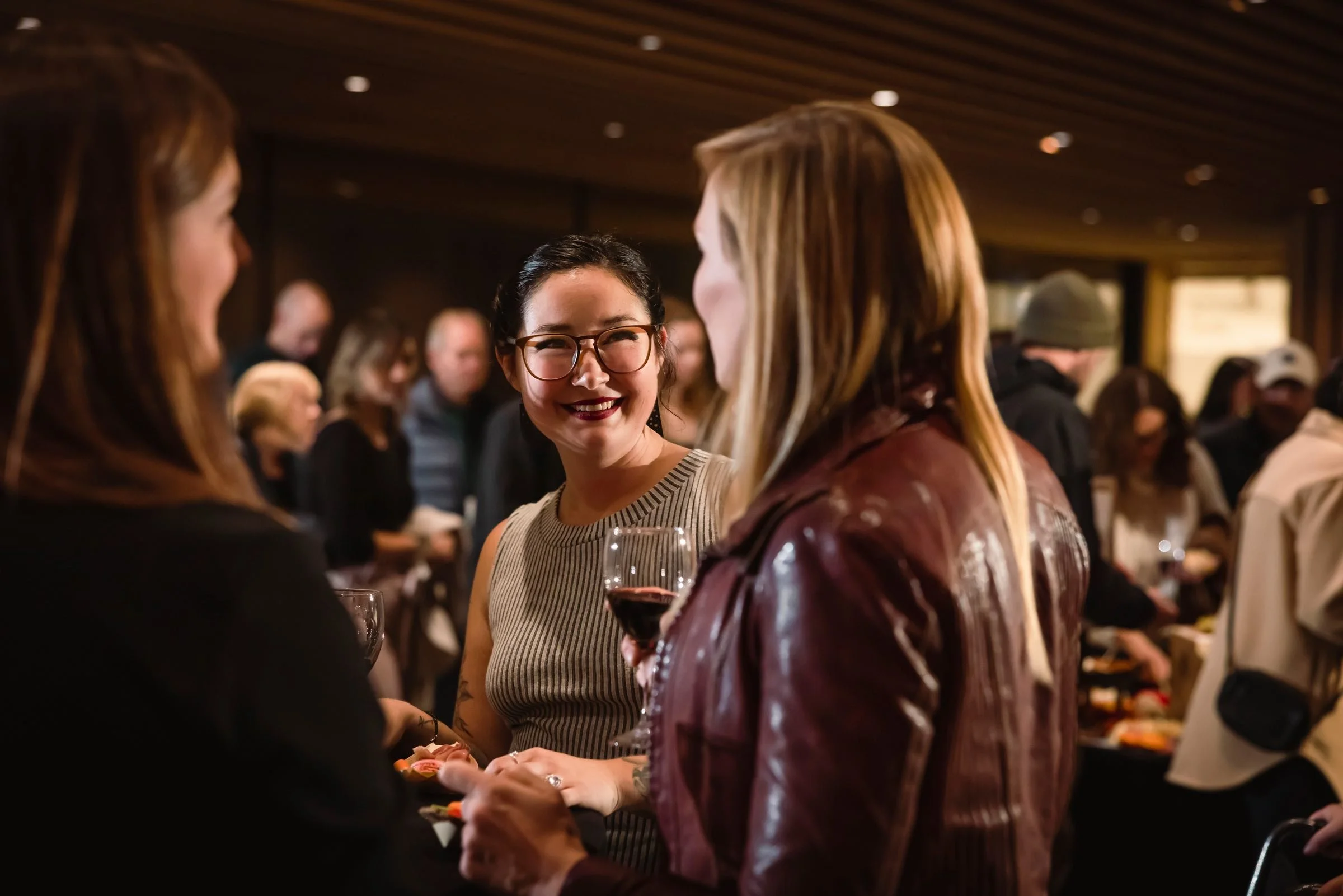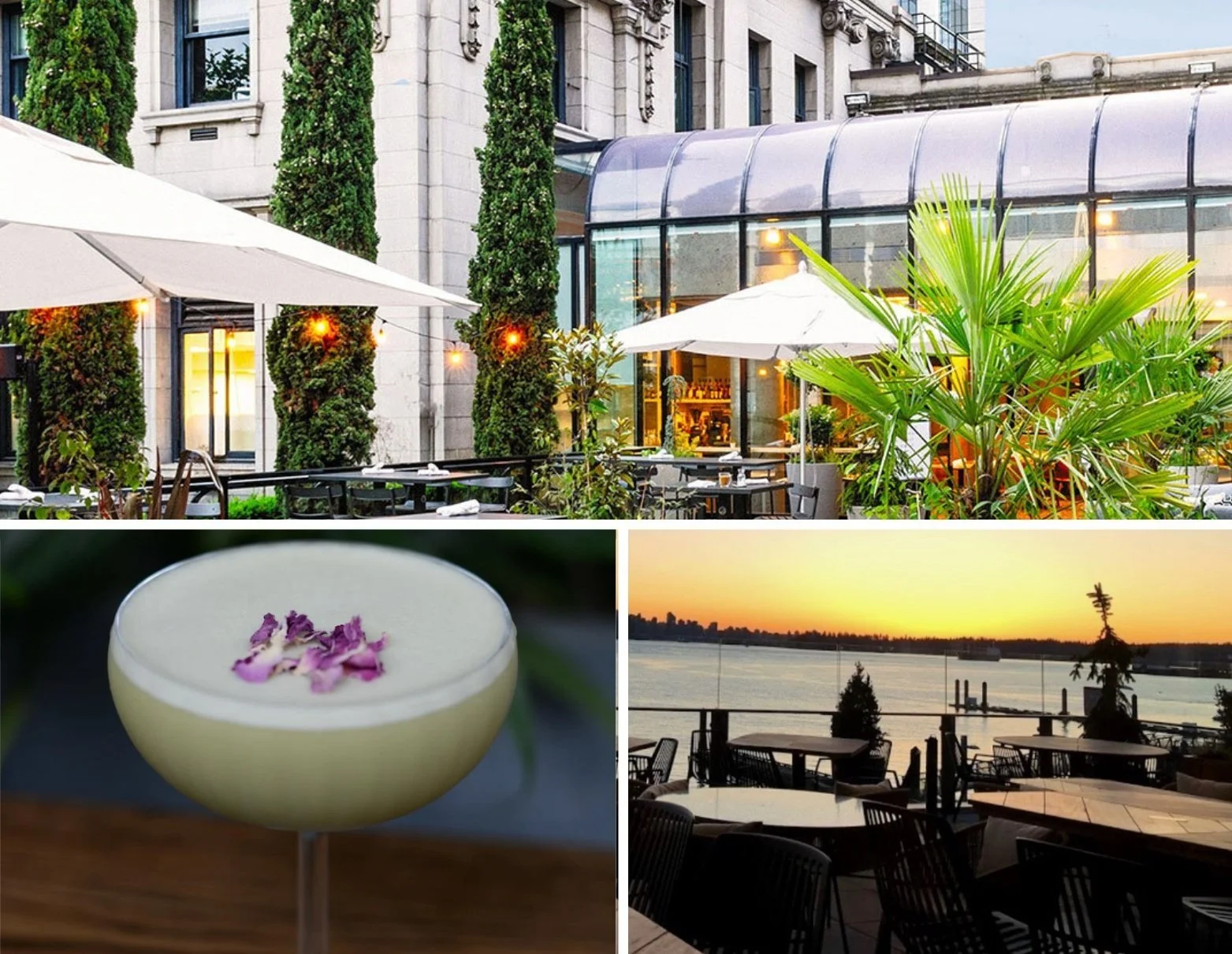At Indian Summer Festival, Kenyan, South Asian, and Philippine cuisines meet at opening night party
The gala is a feast of flavours, reflecting theme of “inter/dependence”
The Indian Pantry.
Indian Summer Festival (July 6 to 16) presents Opening Party: Inter/dependence on July 6 from 7 to 11:30 pm at Performance Works on Granville Island
INDIAN SUMMER Festival likes to get started with a bang: its opening party is the stuff of legend, filled with art of all kinds.
This year’s highlights include a lush, luxurious, and playful space inspired by the accompanying illustration by the fest’s feature artist, Tajliya Jamal. Nisha Patel, Poet Laureate Emeritus of the City of Edmonton, and DJs Nea and Lil India will be appearing, while composer-conductor Hussein Janmohamed will lead a choral performance combinig sounds of South Asia, the Middle East, and East Africa. Then there is the food.
For the first time, Tushar Tondvalkar, chef-owner of the Indian Pantry, will be leading the evening’s culinary experience. To join him in creating a feast that fits with the party’s theme of “inter/dependence”, he has invited Asha Wheeldon, the chef behind East African-vegan food venture Kula Foods; she started the business because she couldn’t find plant-based foods that reflected the flavour or character of her home country of Kenya in Vancouver. Kula means “to eat” in Kiswahili. Then there’s TJ Conwi, who is of Philippine descent and who runs private-chef services, community programs, and consulting out of Ono Vancouver. Ono is a Hawaiian word meaning delicious. Conwi’s culinary repertoire includes flavours from places he’s worked around the globe, including Taiwan and Chile.
The way the opening-night event’s curator Anoushka Ratnarajah see things, food has always been an important part of the festival with its universal, warm way of welcoming people into a space.
“It's a beautiful way to express care for someone and an immersive window into another world,” Ratnarajah tells Stir. “Food is deeply tied to culture, stories, and families. Our recipes preserve so much of our histories, and cuisines transform and evolve with the diasporas that carry them across continents and oceans. How we adapt our food in a new or shifting environment really shows how our creativity and resilience are linked, and how much we crave not just to survive, but to live—to be able to savour and be adventurous. We don’t eat to merely subsist; the table is a site for comfort and an emotional nourishment as well as an opportunity for curiosity, challenge and exploration. Substitutions from necessity can create entirely new dishes and grow into whole cuisines.
“It was easy for the fest to trust the trio with the menu for the party,” Ratnarajah adds, because all three chefs are committed to community-building and recognize that “food is both a right and a joy”. “Their cuisines are unique but connected through trade routes that existed pre-European colonization. All the chefs we are working with have a deep sense of connection to the histories of their cuisines, and all three are storytellers and inventors who express themselves through their food.”
Tushar Tondvalkar
Tondvalkar, who was born and raised in Mumbai and spent summers on the Konkan Coast before heading to Vancouver, likes to broaden most Westerners’ grasp of Indian cuisine through a diverse range of spice blends, simmering sauces, and more. He has held roles at leading restaurants in Asia and worked at several Vancouver restaurants, including the now -defunct Bauhaus and Fish House in Stanley Park. He says that it made sense to bring the foods of India, Kenya, and the Philippines together for ISF given that they have much more in common than some may realize.
“With the Silk Road, when trading was happening, we were dependent on each other’s countries for trading,” Tondvalkar tells Stir. “Now, everyday factories are everywhere, but back in the day there was nothing. That’s how spices travelled to different countries.
“In the Philippines, pickles are called atchara and in India, we call them achar; the Philippine pickle is inspired by the Indian pickle,” he says. “Items like parakas, roti, and biryani were brought to Kenya and South African countries by Indian immigrants.”
Grilled and barbecued meats are common in all three cuisines. Then there’s the popularity of street-food culture. In Kenya, items such as samosas, bhajias—fried snacks—and mandazi [doughnuts] can be traced back to Indian influences, Tondvalkar says. “These snacks have become a part of the local street food scene in Kenya,” he says.
Wheeldon agrees that food naturally crosses, reflects, and incorporates cultures. “There are many similarities in the food of Kenya, the Philippines, and India, including flavour profiles, our cooking processes—like stews—the street-food experience, and colonial history in how some of our dishes were adopted,” Wheeldon says. “Each country has its own rich history that speaks to resilience with diverse regional cuisines, showcasing different flavours, techniques, and dishes.”
At the ISF party, Tondvalkar will prepare charcoal vada sambar—his take on a classic South Indian breakfast, with a potato patty spiced with green chili, turmeric, ginger, and garlic fried in chickpea batter with coconut-peanut chutney topped with a spicy-sour tamarind-lentil stew called sambar. For dessert is parsi mawa cake with jaggery caramel and nuts. The sweet is inspired by India’s Farsi community, and is made from milk solids. The chef compares it to a cupcake, and he used to get the treat back home in six-packs.
Tondvalkar’s role in leading the ISF opening-party culinary brigade is new. Although he has participated in the fest over the last several years, it’s the first time he’s the overseeing chef; in the past Vikram Vij has taken on the task.
Tondvalkar was inspired to ask Conwi to join him, having been moved by the work the latter has done for charitable causes; Conwi, whose experience includes a role as a former executive chef at a major hotel, began rescuing food and creating meals for people in need during the pandemic. Tondvalkar recalls seeing a video about Conwi’s selfless act: “It made me cry,” he says. “It was so motivating to watch. He has rescued so much food every year, every day, and produced thousands of meals. And he’s one of the nicest people I have ever met.”
Tondvalkar got to know Wheeldon through the commissary kitchen they both work out of. “Asha and me had such a great connection right from the beginning,” he says. “We did a pop-up a few months ago and first met at farmers’ market.”
Wheeldon will be serving Kula’s vegan ginger-beef skewers with kachumbari. It’s a Kenyan-style vegan-beef mishikaki (kebabs) made from Canadian-grown pea protein and served with kachumbari, a spicy tomato and onion salad. Wheeldon marinates the plant-based main ingredient with some of Tondvalkar’s spice blends.
“This is a great opportunity to share our common love for food and culture,” Wheeldon says. “The theme for this year means a lot to me. Food is a vehicle to bring people together and I believe our cultural history and food stories connect us. I am very excited to be able to contribute to this story with our plant-based options.”
Chef Conwi, meanwhile, plans on serving up kare-karep, an annato-infused goat stew. The orange-red annato is a condiment derived from the seeds of the achiote tree. The dish is accompanied by atchara (pickled) green papaya, eggplant, and okra.
TJ Conwi
Put together, the menu is a toothsome means to get people connecting over a range of flavours and cultures.
“This Indian Summer Festival is such a great platform to bring all the artists not just from the city but from South Asian and other backgrounds together,” Tondvalkar says. “It’s great to connect with the community and showcase the talent and meet new artists and interact through food or music or any kind of art. Since I launched my company, I knew I needed to get in with Indian Summer Festival, and I would do something every year. I feel honoured to be a part of this and always look up to this event. Through food, I think we have so much in common.”
As for the opening-night party’s theme, Ratnarajah explains is was a parting gift co-founder Sirish Rao before he and partner Laura Byspalko left to explore new things.
“Our world is being stretched to its limits, and so many of our systems are failing,” Ratnarajah says. “I think the forced introspection of the pandemic has made us so much more aware of how connected we are, how much we can impact each other, even when we were forced to stay apart. I wanted to engage with artists who explore the beauty and pain of these undeniable connections, to parse some of the learnings from the last few chaotic and heartbreaking years. I would love to live in a more interdependent, reciprocal, and just world, and I think artists have an important role in dreaming up new possibilities for how we could live together.”
















